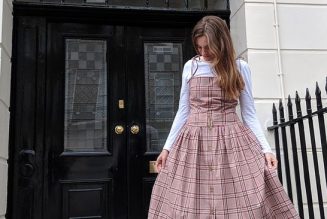
More young Americans are choosing to skip the traditional milestones set by their boomer parents and opting not to have children — and they’re taking to social media to celebrate the perks.
Don’t miss
Ness Baker recently labeled herself and her partner DINKWADs (dual income, no kids, with a dog) in a viral video that featured the couple going shopping, lounging in bed and enjoying the outdoors. The TikTok video generated over 10 million views and plenty of debate.
Not everyone who came across the video was warm to the idea of going childless by choice. “Good luck dying alone at 60 to 70 with no kids or grandkids to take care of you,” wrote one viewer in a comment that received over 5,000 likes.
The DINK lifestyle isn’t for everyone. And while there are many factors involved in the decision whether to have children or not, here are the financial implications of both sides.
Higher income and savings potential
The most obvious benefit to the DINK lifestyle is (hopefully) dealing with fewer financial responsibilities. Forget having to budget for groceries, extra health care, childcare, education costs, Christmas and birthday parties, and so on. You can probably even live in a smaller and cheaper home — or at least not have to worry about good school districts in the neighborhood.
Ideally, this will leave you more room in your budget for fun activities like dining out or travel — and also to build your savings.
As long as you plan and budget wisely, you can take this opportunity to build some pretty solid retirement savings.
Lack of support as you age
However, you may need all that extra cash to save for your expenses later in life. One of the biggest counter-arguments for choosing not to have children is the lack of built-in social support many older Americans rely on as they age.
And going it alone has a price tag for some. A 2018 report from the U.S. Census Bureau revealed that while older childless adults have a higher median personal net worth compared to older parents, they’re also associated with a higher poverty rate. Essentially, while there are many wealthy DINKs, there’s also a significant number being left behind financially.
Unfortunately, there’s no way to know for sure which situation you’ll end up in as there are likely other factors that contribute to this disparity.
Older childless adults are also more likely to require paid care as they age, like moving to a long-term care home or hiring a caregiver to help out. And that’s a pricey prospect.
Read more: Your cash is trash: 4 simple ways to protect your money against white-hot inflation (without being a stock market genius)
More flexibility in your career
When you’re not a caregiver, you could be opening yourself up to more career opportunities. You won’t need to take parental leave or say, leave work early to pick your kids up from school.
This could potentially lead to increased job satisfaction and a higher salary or promotions down the road.
And your time outside of your regular 9-to-5 will be a lot more flexible, making it easier for you to take on a hobby, side hustle or even generate some passive income as well.
Fewer tax benefits
The tax perks associated with being a parent might not be the first thing that comes to mind when deciding whether or not to expand your family, but they really can significantly lower your tax bill each year.
As a parent, you can claim the Child Tax Credit, which gets you $2,000 per child. However, it is non-refundable, which means it can only bring your tax bill down to $0 and you won’t be refunded the excess.
And while the refundable earned income tax credit is open to everyone, taxpayers can claim more money the more children they have.
In fact, you could get up to $7,430 if you fall under the required income threshold and have three or more qualifying children in your household for the 2023 tax year. In comparison, taxpayers with no children qualify for a maximum of $600.
What to read next
This article provides information only and should not be construed as advice. It is provided without warranty of any kind.









